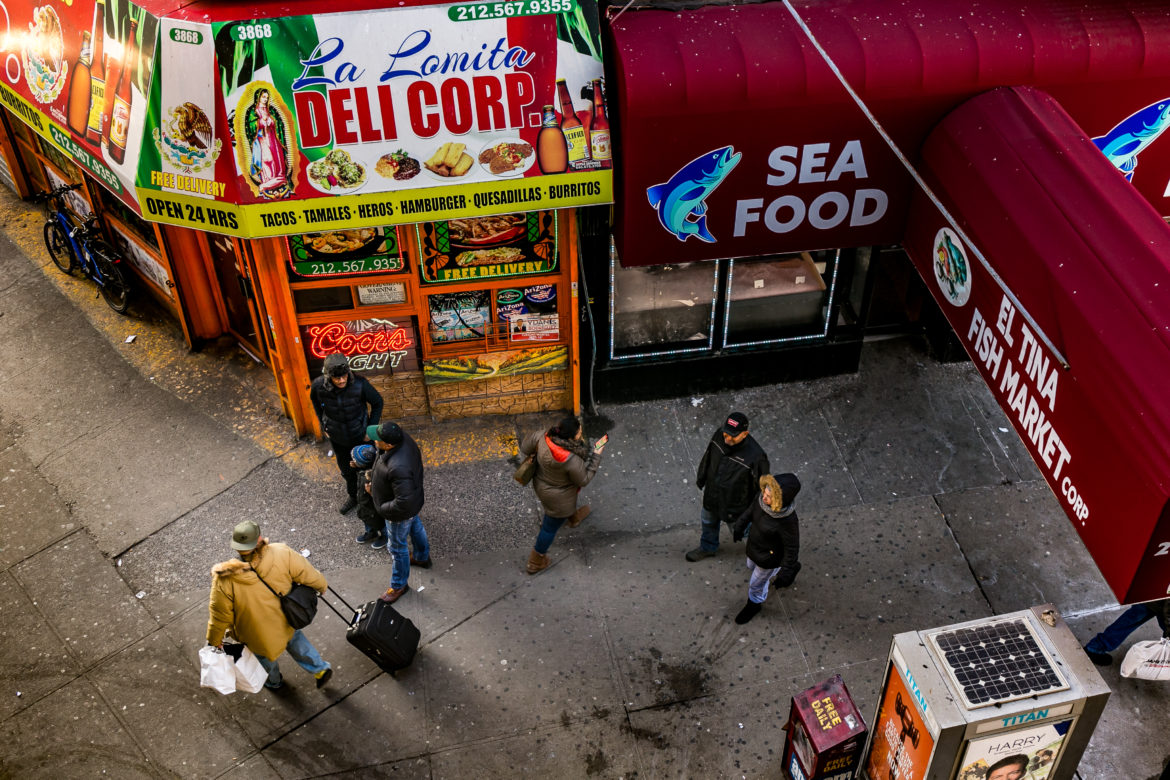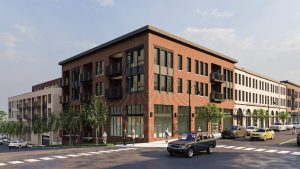
Opinion: Outdated Zoning Rules are Hurting the City’s Small Businesses
“As businesses evolve to meet changing consumer preferences, it has become clear that zoning regulations too often put up real, often unnecessary obstacles for businesses looking to make these necessary pivots as a matter of survival.”
Adi Talwar
Small businesses is in Inwood, Manhattan.
CityViews are readers’ opinions, not those of City Limits. Add your voice today!
The world has changed and so too have the ways in which people spend their time and money— but regulations are slow to change, and small businesses are suffering because of it. When New Yorkers spend our money locally, we increasingly do so on goods and services that cannot be purchased online, or on dining out at local restaurants and bars.
As businesses evolve to meet changing consumer preferences, it has become clear that zoning regulations too often put up real, often unnecessary obstacles for businesses looking to make these necessary pivots as a matter of survival. This is why the zoning modifications in the Department of City Planning’s “City of Yes for Economic Opportunity” proposal are so important—many of our regulations were written decades prior to the COVID-19 pandemic and have not been updated for the post-pandemic economy, to support small businesses in the present day.
The impacts of the pandemic on very small businesses (fewer than 10 employees), who make up 89 percent of all New York City businesses, have been particularly challenging. Whether pre-COVID or post-COVID, the fact remains that small local businesses start off with less capital than their national counterparts. JP Morgan Chase found that the median small business pre-COVID held only 27 days cash buffer in reserve, for example, and retail businesses held less: only 19 days’ reserves.
They also often lack the expertise to navigate challenging bureaucracies, resources to hire expeditors, or deep pockets to pay rent while waiting for permits and approvals. Eliminating these hurdles and helping businesses open their doors more quickly will help these entrepreneurs preserve their liquidity and better weather financial shock and irregular cash flows, which in turn saves more small businesses from failing.
New York’s City of Yes for Economic Opportunity proposal, up for a vote at the City Planning Commission next week, includes several key changes that cities across the country should learn from.
One proposal, for example, would streamline today’s time-consuming, expensive, and unnecessary public approval process for neighborhood-serving retail like bodegas. Rather than forcing these businesses to apply for a full rezoning—the same process required to revamp an entire neighborhood’s zoning from manufacturing to residential, as was done in Gowanus, for example—the City of Yes proposal would allow the City Planning Commission to green-light small corner stores through a discretionary authorization.
Another challenge for small businesses in New York comes from today’s relatively narrow definition of what kinds of uses belong on our commercial corridors. In the past, all forms of manufacturing were considered a noxious use that for health and safety reasons needed to be separated from the places where people lived. Today, small scale and artisanal manufacturing co-exist quite well with mixed-use communities—but the zoning code has failed to keep up.
Consider the fact that small bakeries are allowed on commercial strips but must find new spaces if they succeed and grow beyond 750 square feet. And consider bike shops, which are increasingly losing sales to online vendors. Many of these businesses would like to pivot to also offering bike repair, but because of zoning restrictions they cannot. Making it harder, not easier, for businesses to occupy retail spaces unnecessarily elevates our commercial vacancy rates.
New York’s zoning, as with zoning of many other cities, also closely proscribes which types of businesses can locate where—based on definitions that are as much as 60 years old. New York’s zoning code, for instance, specifically names which districts telegraph repair shops can locate in, but not cell phone stores. City of Yes would update these terms and would consolidate minor differences between commercial zoning districts to allow more types of businesses to locate in more places. It is only by expanding the types of businesses that can locate in ground floor spaces that we can create more demand for vacant spaces throughout the city.
As a former New York City Planning Commissioner, I am quite aware of the fact that zoning does not change easily. Yet in this case, it absolutely must.
In my current work advising cities nationwide on this very issue, similar circumstances are causing cities to broaden the definition of what is allowed on the ground floor to include things like makerspaces for local artisans, daycare facilities, breweries, community meeting spaces, and educational and medical uses, among others use—and yes, even housing (which, given many cities’ housing crisis, makes absolute sense!).
Cities across the country are revisiting their zoning codes to ensure that they don’t become unnecessary impediments to ground floor occupancy. New York must do the same and adopt these reforms to become a “City of Yes.”
Larisa Ortiz is the managing director of public non-profit solutions at Streetsense, a global creative consultancy. She is a former member of the New York City Planning Commission and was a Crain’s New York 2023 Notable Leader in Real Estate.
The post Opinion: Outdated Zoning Rules are Hurting the City’s Small Businesses appeared first on City Limits.


